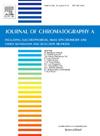Highly pure measles virus generated by combination of salt-active nuclease treatment and heparin affinity chromatography
IF 3.8
2区 化学
Q1 BIOCHEMICAL RESEARCH METHODS
引用次数: 0
Abstract
Highly purified virus preparations are essential for accurate activity and potency determination. This requires simple and efficient purification methods, especially in the early stages of research and development. While heparin affinity chromatography has been already successfully used for the purification of several enveloped viruses and virus-like particles, we extended its use to purification of very sensitive measles virus. The performance of heparin and heparin-like affinity chromatography was evaluated for the purification of recombinant measles virus, a large and labile enveloped virus used as vaccine or cancer therapy. Since DNA, particularly in the form of chromatin is a critical impurity in enveloped virus preparations, the effect of integration of an endonuclease (Benzonase® or M-SAN) treatment prior to chromatography was also investigated.
Both, Capto™ DeVirS (heparin-like) and Capto™ Heparin were able to capture measles viruses directly from clarified cell culture supernatant. Despite capturing 100 % of infectious measles virus, low recovery (8 %) was observed for Capto™ DeVirS. For Capto™ Heparin recoveries up to 85 % were observed. The combination of M-SAN with Capto™ Heparin enabled the production of highly purified measles virus with a yield of 62 % and a final purity of 10.2 ng dsDNA per dose (1 × 105), outperforming the processes without endonuclease treatment with a yield of 18 %, and a purity of 66.7 ng dsDNA/dose or using Benzonase® with a yield of 38 % and a purity of 21.2 ng dsDNA/dose. As the developed method is simple and scalable it could also be integrated in a downstream process train for measles virus manufacturing.
结合盐活性核酸酶处理和肝素亲和层析技术生成高纯度麻疹病毒。
高度纯化的病毒制剂对于准确测定活性和效力至关重要。这就需要简单高效的纯化方法,尤其是在研发的早期阶段。虽然肝素亲和层析法已成功用于纯化多种包膜病毒和类病毒颗粒,但我们将其应用扩展到了非常敏感的麻疹病毒的纯化。在纯化重组麻疹病毒时,我们对肝素和类肝素亲和层析的性能进行了评估,重组麻疹病毒是一种用于疫苗或癌症治疗的大型易变包膜病毒。由于 DNA(尤其是染色质形式的 DNA)是包膜病毒制剂中的重要杂质,因此还研究了在层析之前加入内切酶(Benzonase® 或 M-SAN)处理的效果。Capto™ DeVirS(类肝素)和 Capto™ Heparin 都能直接从澄清的细胞培养上清液中捕获麻疹病毒。尽管 Capto™ DeVirS 可捕获 100% 的传染性麻疹病毒,但其回收率较低(8%)。而 Capto™ Heparin 的回收率则高达 85%。将 M-SAN 与 Capto™ Heparin 结合使用,可生产出高度纯化的麻疹病毒,每剂量(1 × 105)的产量为 62%,最终纯度为 10.2 ng dsDNA,优于未经内切酶处理的工艺(产量为 18%,纯度为 66.7 ng dsDNA/剂量)或使用 Benzonase® 的工艺(产量为 38%,纯度为 21.2 ng dsDNA/剂量)。由于所开发的方法简单且可扩展,因此也可集成到麻疹病毒生产的下游工艺流程中。
本文章由计算机程序翻译,如有差异,请以英文原文为准。
求助全文
约1分钟内获得全文
求助全文
来源期刊

Journal of Chromatography A
化学-分析化学
CiteScore
7.90
自引率
14.60%
发文量
742
审稿时长
45 days
期刊介绍:
The Journal of Chromatography A provides a forum for the publication of original research and critical reviews on all aspects of fundamental and applied separation science. The scope of the journal includes chromatography and related techniques, electromigration techniques (e.g. electrophoresis, electrochromatography), hyphenated and other multi-dimensional techniques, sample preparation, and detection methods such as mass spectrometry. Contributions consist mainly of research papers dealing with the theory of separation methods, instrumental developments and analytical and preparative applications of general interest.
 求助内容:
求助内容: 应助结果提醒方式:
应助结果提醒方式:


